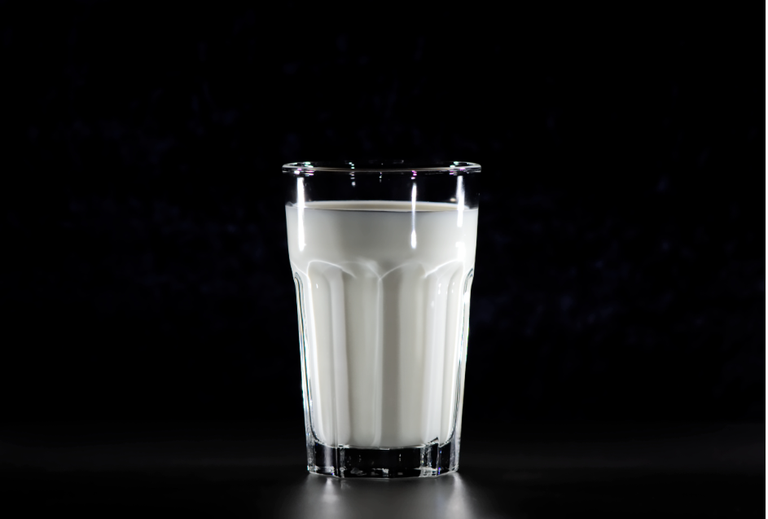The misconception between stomach ulcer and milk palliative

Living with the discomfort of an ulcer can feel like a never-ending battle. It's like having an uninvited guest who overstays their welcome, causing discomfort and pain at the most inconvenient times. For the past six months, I've been grappling with this unwelcome intruder, and it's been a rollercoaster ride of sleepless nights and dietary changes.
Despite not having an official diagnosis, I've had to adapt my lifestyle to that of an ulcer patient. This includes being selective about my food choices, avoiding foods that could potentially aggravate my condition, and steering clear of stressful activities. However, despite these adjustments, the pain persists.
In my quest for relief, I've been bombarded with a plethora of suggestions, particularly those centered around alternative and complementary medicines. Some of these include consuming an aqueous decoction of unripe pawpaw fruits, chewing raw bitter leaf or raw/dry moringa leaf, among others. However, I remain skeptical about these alternatives due to the lack of scientific evidence supporting their effectiveness.
One common suggestion that has been consistent across all advice is the consumption of milk as a palliative measure during ulcer crises. This advice was even endorsed by a highly respected teacher of mine who used milk as a relief during his 'ulcer days'. He would observe religious fasts and break them with milk before consuming anything else.
Scientifically, milk has been shown to provide temporary relief from ulcer pains due to its soothing properties. It forms a protective layer over the stomach lining, reducing irritation and discomfort. This is primarily attributed to milk's high calcium content which acts as an antacid. Additionally, milk contains proteins that can buffer stomach acid.
However, it's important to note that milk contains about 0.13% to 0.18% lactic acid. Lactic acid is a natural component of milk and contributes to the sour taste of fermented dairy products like yogurt and buttermilk. So how does something acidic provide relief from a condition caused by excess stomach acid?
The answer lies in moderation. The percentage of acid in milk is significantly less compared to the components that provide relief from ulcer pain. However, excessive consumption of milk can increase stomach acidity and exacerbate ulcer pain. This is because ulcers are caused by excess stomach acid.
In conclusion, while milk can provide temporary relief from ulcer pain, it should be consumed in moderation. Excessive intake can increase stomach acidity and worsen ulcer symptoms.
It's also worth noting that there are other alternative remedies for ulcers such as probiotics, colorful fruits rich in flavonoids, and certain spices like licorice. These have been shown to help restore balance in the digestive tract and aid in treating ulcers. However, these should be used in conjunction with medical treatment.
As always, it's best to consult with a healthcare professional for proper diagnosis and treatment. They can provide safe alternative options and guide you on the best course of action tailored to your specific needs.
Online resources
- https://www.medicalnewstoday.com/articles/322740.
- https://www.healthline.com/nutrition/stomach-ulcer-remedies.
- https://health.howstuffworks.com/wellness/natural-medicine/alternative/alternative-medicines-for-ulcers.htm.
- https://www.verywellhealth.com/is-milk-good-for-an-ulcer-2506992.
- https://www.medicalnewstoday.com/articles/what-drink-is-good-for-ulcers.
- https://www.webmd.com/digestive-disorders/ss/slideshow-stomach-ulcers-best-worst-foods.
- https://www.msn.com/en-us/health/condition/Peptic-ulcer/hp-Peptic-ulcer?source=conditioncdx.
- https://bing.com/search?q=ulcer+causes+and+treatments.
- https://www.mayoclinic.org/diseases-conditions/peptic-ulcer/symptoms-causes/syc-20354223.
- https://www.healthline.com/health/stomach-ulcer.
- https://www.healthdirect.gov.au/mouth-sores-and-ulcers.
- https://bing.com/search?q=milk+and+ulcer.
- https://www.healthline.com/health/natural-home-remedies-ulcers.
- https://www.healthline.com/health/types-of-ulcers.
- https://www.medicalnewstoday.com/articles/9273.
- https://health.usnews.com/conditions/digestive-disease/peptic-ulcer/articles/stomach-ulcer-diet-foods-to-eat-and-avoid.
- https://www.healthline.com/health/stomach-ulcer-diet.
I so much love this article....nice write up
Thanks for reading
This is indeed helpful, I do have ulcer and I want told milk cures it but now I know it's just a temporary relief 😊
Glad you found the post helpful. You should consider an all-encompassing approach to manage your ulcer. That's the only way to get rid of it for a long time.
Thanks for your contribution to the STEMsocial community. Feel free to join us on discord to get to know the rest of us!
Please consider delegating to the @stemsocial account (85% of the curation rewards are returned).
You may also include @stemsocial as a beneficiary of the rewards of this post to get a stronger support.